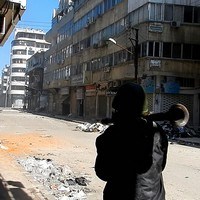A key component of Iran’s Middle East policy is the deployment of unconventional actors to achieve political ends. Tehran has seen successes in this regard: Its client Hezbollah has become a major political party and militia in Lebanon, and, through the use of other such groups, Iran managed to increase its influence in Baghdad while diminishing that of the United States during the American war in Iraq.
But Iran has now taken on considerable risk by intervening in a similar fashion in the Syrian conflict, where its mission is fundamentally different than it was in Lebanon or Iraq. In Syria, Iran is in essence undertaking a foreign internal defense mission in which the “host nation” security forces, in this case a combination of Syrian government forces and Hezbollah, do the majority of the fighting while Iran transfers political, technical and financial support to the Syrian regime through the Iranian Revolutionary Guard Corps (IRGC).
Iran’s preferred outcome is to prevent the fall of the Syrian regime under President Bashar al-Assad. Failing that, however, Iran hopes to maintain its influence in a post-Assad Syria in order to maintain its transit routes for supplying Hezbollah.

